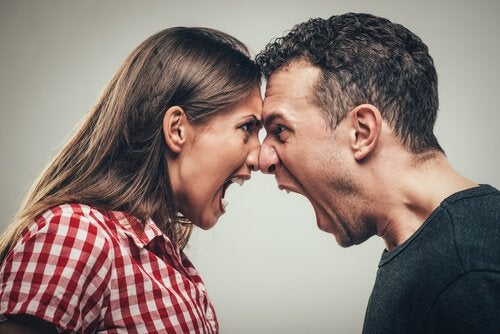Aggression is present every day around us. We find it in the news, on the street and on social media, this seems to be a natural tendency of the human being, so, to a greater or lesser degree, it would be in all, aggressive behaviors manifest themselves in various ways and there are theories that emphasize their adaptive value for our survival as a species.
Psychology has devoted a lot of time and work to the study of aggressive behavior, its causes, processes and consequences. There are aggressive behaviors, secret or explicit, direct or indirect, of speech or action, physical or verbal, psychological or relational.
- In general.
- There are two types of aggressive behavior: hostile aggression and instrumental or predatory aggression.
- They differ mainly in their motivation.
They have different backgrounds, predict different problems and are associated with different cognitive and emotional processes.
There does not appear to be a direct correlation between genetics and aggressive behavior, in fact it would be an interaction between biological and environmental factors which makes us more prone to aggression, on the other hand, we must think that aggression between humans is very socially controlled.
Different types of aggressive behavior seem to come from different areas of the brain: the amygdala, the formation of the hippocampus, the septal area, the prefrontal cortex and the circumvolution of the circle seem to shape aggressive behaviors through connections to the medial and lateral hypothalamus (Haller 2014).
A decrease in gray matter was observed in particularly aggressive individuals, it has also been proposed as a stimulant of aggressive behaviors, combining high levels of testosterone and low levels of cortisol.
Serotonin levels also play an important role in aggressive behavior, manifestation and control.
There is the theory of neo-association, developed from the work of Freud, by Berkowitz, which considers that aggressive impulse is activated when the individual is prevented from reaching a desired goal, leading to a negative emotional state, which would lead to aggressive behavior in the individual.
We also have Bandura’s theory of social learning, which proposes that these are external influences that stimulate aggressive behaviors and are integrated into our behavioral repertoire by imitation.
In other words, we acquire the behavior by watching others behave aggressively, especially if the observed person appreciates the goodness of the apprentice and considers him a similar person, and if the observer realizes that he or she makes any profit. aggressive behavior.
It is, in essence, the two perspectives from which Anderson and Bushman depart, that have proposed an integration of the two models. This third theory takes into account biological, environmental, psychological and social factors to explain aggressive behaviors.
Aggression is caused by an interaction of the individual’s personal characteristics with external stimuli that activate a set of cognitive and emotional processes.
Factors that anticipate or intervene in aggressive behavior include social, non-social, and internal factors of the individual. Social instigators include triggers such as provocation, perceived unfair treatment, or social rejection.
Non-social instigators include aggressive outbursts (images or objects in the situation that trigger aggressive thoughts), as would be the case with the presence of weapons in a situation.
On the other hand, we encounter environmental stressors, such as heat, overpopulation, or loud noises that often act as triggers for aggressive behavior.
There are also cognitive factors involved in aggressive behavior, such as recurrent negative thoughts, moral disconnection, or activation of scripts or scripts (schemes that represent situations that guide aggressive behavior).
These scripts are repositories of memories of easily recoverable experiences and situations, as well as storing beliefs about what normal behavior should look like under certain circumstances.

